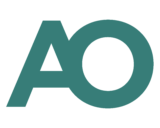Home › Forums › Actuarial Resources & Blogs › AFTER THE INTERVIEW: CRAFTING EFFECTIVE THANK YOU NOTES
- This topic has 0 replies, 1 voice, and was last updated 8 months, 1 week ago by
Emma Ansah.
-
AuthorPosts
-
May 17, 2024 at 7:52 pm #25115
A successful job hunt is a series of steps and every step counts. From drafting a resume to negotiating and accepting an offer, candidates are navigating a long list of tasks to present their qualifications and experience in the best light. Amidst all these tasks, one often overlooked element can have a significant impact—the thank you note.
You may think that thank you notes are old fashioned and interviewers don’t care about receiving a note from applicants following interviews. As a recruiter, I can confirm that there are still plenty of professionals who do believe they are important, and employing them will afford you the opportunity to stand out from the applicant pool. It’s worth the effort to spend ten minutes writing and sending a note.
In the realm of job interviews, a well-crafted thank you note is a strategic move that can set you apart from the competition and leave a lasting impression on your potential employer. If the decision has come down to you and another candidate, a thoughtfully written, substantive note can make a difference. Let’s explore why thank you notes matter, the impact they can have on your job search journey and how to write them effectively.
WHY DO THANK YOU NOTES MATTER?
An email thank you note offers a unique opportunity to reiterate your interest in a position, express appreciation for the interviewer’s time and reinforce why you’re the ideal candidate for the job. In a competitive field of applicants, a thank you note is way to emphasize your skills and keep you in the forefront of an interviewer’s mind.They also indicate to a potential employer that you understand the importance of business etiquette. This is a key skill for all to have, especially for client facing roles.
CRAFTING THE PERFECT THANK YOU NOTE
So, how do you craft a note that leaves a positive, lasting impression? Here are some tips to help you nail it:1. Personalization Matters:
A separate note to each interviewer allows you to reference specific points from your conversation. Make sure to build on the discussion and accentuate your qualifications and how they align with the company’s needs.2. Keep it Concise:
Aim for brevity while conveying sincerity, but steer clear of the generic “thank you for your time, I hope to hear from you soon.” Your message should be concise, and clearly show you were engaged in the dialogue. You can refer to challenges in the role, but also include how you would address these challenges. Make sure to convey your interest in the opportunity and how it fits into your career plans. You should be able to convey this in 2 to 3 short paragraphs.3. Reiterate Your Interest:
Always express genuine enthusiasm for the role and the company. Reinforce why you’re excited about the opportunity and how you can contribute to the success of the team.4. Proofread Carefully:
Typos and grammatical errors will detract from your attention to detail. Proofread your note multiple times or have a friend review it before sending.5. Be Prompt:
Send the email within 24-48 hours of the interview. This demonstrates your interest and professionalism.THE IMPACT OF THANK YOU NOTES
While the ultimate hiring decision may not hinge solely on your note, employers appreciate candidates who take the time to express gratitude and follow up after an interview. Even if you don’t land the job, sending a follow up leaves a positive impression that can pay dividends down the road. You never know when your paths may cross again, and maintaining a gracious and professional demeanor can open doors to future opportunities.CONCLUSION
In the competitive landscape of job hunting, every interaction counts. A thoughtful thank you note is not just a courtesy—it’s a strategic move. The next time you finish an interview, don’t underestimate the power of a simple note of thanks. It could be the difference between blending in and rising above a crowded field of applicants.By: Patty Kennelly and Mimi Fritz
-
AuthorPosts
- You must be logged in to reply to this topic.
